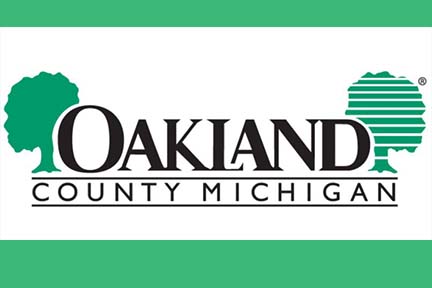
New invasive plant added to state’s watch list
|
|
||||||||
 |
||||||||
News Release |
||||||||
|

|
|
||||||||
 |
||||||||
News Release |
||||||||
|

Press Release FOR IMMEDIATE RELEASE: Oct. 2, 2023 CONTACT: Chelsea Wuth, 517-241-2112, [email protected] MiDDC joins national effort to observe Disability Employment Awareness Month in October LANSING, Mich. — The Michigan Developmental Disabilities Council (MiDDC), part of the Michigan Department of Health and Human Services, is celebrating National Disability Employment Awareness Month, an awareness campaign that takes place each October. The purpose of National Disability Employment Awareness Month is to educate the public about disability employment issues and celebrate the many and varied contributions of all workers with disabilities. This year’s theme is “Advancing Access and Equity.” Throughout October, MiDDC will be engaging in a variety of activities to educate the public on disability employment issues and its commitment to an accessible and equitable work culture. MiDDC will also coordinate with the Self-Advocates of Michigan (SAM) organization to raise awareness of how employees with disabilities contribute to their communities. “MiDDC is proud to take part in this year’s National Disability Employment Awareness Month,” said Dr. Yasmina Bouraoui, MiDDC executive director. “This month is a celebration of the contributions of employees with disabilities, and also an opportunity to showcase how inclusion and diversity in our workforce create a stronger society that amplifies the true potential in every individual.” Activities during Disability Employment Awareness Month include:
Employers and employees in all industries can learn more about how to participate in National Disability Employment Awareness Month and ways they can promote its messages during October and throughout the year by visiting Michigan.gov/DDCouncil. |


Press Release FOR IMMEDIATE RELEASE: Aug. 14, 2023 MEDIA CONTACT: Bob Wheaton, 517-241-2112, WheatonB@ Michigan to keep kids safer by embedding family resource specialists with child protection staff to connect Michiganders to resources LANSING, Mich. – The Michigan Department of Health and Human Services (MDHHS) will keep children at risk of neglect safer by making sure their parents are connected to department programs that can meet their basic needs. MDHHS is announcing the Family Impact Teams project, which embeds family resource specialists with child protection and foster care staff to so they can support families in applying for benefits such as food assistance and Medicaid and connect them to other economic supports. The first phase of the project begins this month. “Many families that come to the attention of the child protection system need help with providing their children with housing, food, health care coverage, quality childcare and other necessities so that they can be safe and healthy,” said MDHHS Director Elizabeth Hertel. “Our family resource specialists can immediately connect them to the resources they need so their families can stay together safely. We must help families who love their children but struggle to meet their needs due to economic instability.” Family Impact Teams are part of MDHHS’s Keep Kids Safe Action Agenda, the department’s ongoing efforts to improve the safety and well-being of Michigan children. Family resource specialists will engage with families face-to-face, determine their eligibility for assistance programs offered by MDHHS, and refer them to other local agencies that can provide them with resources to meet the families’ needs. “One of MDHHS’s top priorities is to remove barriers to family success,” said Lewis Roubal, chief deputy director for opportunity. “Providing additional supports to the families of at-risk children will keep them safer.” The first phase of the project is in the following counties: Allegan, Barry, Chippewa, Grand Traverse, Kalkaska, Leelanau, Luce, Mackinac, Oakland, Sanilac, St. Clair and Wayne. The second phase of the project will roll out statewide throughout 2024. There are 19 Family Impact Teams family resource specialists who are currently being trained. “When family resources specialists visit parents along with Children’s Protective Services or foster care staff, we will provide positive support to families in need by ensuring they have access to economic resources which will help to remove financial barriers. Working with Children’s Services staff, we can provide families the support they need to remain together or the support they need for reunification,” said Amethia Sellers, who will be one of the new embedded specialists in Wayne County. “Having been a part of the foster care system as a child, I had an amazing social work team who made a difference in my life and I too want to have that same impact in the lives of others who are experiencing barriers within their lives.” Sellers has worked for the department as an eligibility specialist for more than three years. She applied for the new position because she is excited to work with families in children services and has a background servicing children in foster care. The Family Impact Teams approach strengthens collaboration between MDHHS’s Economic Stability Administration – which provides public benefits such as food assistance and Medicaid – and its Children’s Services Administration, which protects children and provides services to their families. Providing childcare subsidies decreases child neglect by 31%, according to a study by Chapin Hall at the University of Chicago, while referring homeless families to permanent housing decreases foster care placement by 50% and connecting families to food assistance decreases child maltreatment by 11%. |

Pontiac, Mich. – The Healthy Oakland Partnership (HOP) encourages Oakland County residents to participate in their annual Family Market Days. Five-dollar coupons to purchase produce from local farmers are available to residents with a State of Michigan Bridge/EBT card or who are enrolled in Oakland County Women, Infants, and Children (WIC).
“We are connecting residents with locally grown, fresh produce and familiarizing them with farmers markets around the county,” said Leigh-Anne Stafford, director of Oakland County Department of Health and Human Services. “Family Market Day events reflect our commitment to helping increase the amount of fresh produce residents’ purchase, and they also support our local farmers.”
Family Market Day this week is 9 a.m. – 1:30 p.m. Wednesday, July 26 at the Oak Park Farmers Market in the Oak Park High School Parking Lot, 13701 Oak Park Blvd., Oak Park.
Coupon distribution ends 30 minutes prior to the market’s closing. Distribution is on a first-come, first-served basis. Coupons must be used during the event. No registration is necessary.
In addition to $5 coupons for produce, a variety of activities for families will be available including face-painting, a petting zoo, and prizes. Various resources will also be on-site, including breastfeeding support, and WIC Project FRESH.
WIC Project FRESH coupons will also be available at Family Market Days for eligible WIC clients – pregnant or breastfeeding women, and children ages 1-5 years old. Only one coupon book per family. No appointment is needed to attend WIC Project Fresh. Coupons are distributed on a first-come, first-served basis. The Oak Park Farmers Markets also offer Double Up Food Bucks, which matches money spent at a farmers market using a Bridge card/EBT up to $20.
Family Market Days are made possible in part by Henry Ford Health System, Humana, and Trinity Health.
For more information, visit www.oakgov.com/health, @publichealthOC on Facebook and Twitter, or contact Kelsey Merz at [email protected] or (248) 365-8954.


FOR IMMEDIATE RELEASE
July 25, 2023
Contact: [email protected]
Gov. Whitmer Signs New Agreement with Ontario to Strengthen Economic Ties, Support Increased Trade and Job Creation Between Countries
LANSING, Mich. — Today Governor Gretchen Whitmer and Ontario Premier Doug Ford signed a new economic agreement building on our longstanding economic relationship through a new partnership that will increase trade, attract investment, and encourage job creation in both jurisdictions. The new strategic investment and procurement agreement (SIPA) will support joint initiatives and the creation of new programs for businesses in priority areas, including electric vehicles and related supply chains. “As home to the busiest border crossing for goods between the U.S. and Canada, Michigan and Ontario have deeply shared economic interests on issues from future mobility to agriculture,” said Governor Gretchen Whitmer. “Canada was the top destination for Michigan exports last year, putting $27 billion into our economy and creating thousands of jobs across our state. Today’s Memorandum of Understanding will reaffirm our partnership and foster greater collaboration on trade, technology, cybersecurity, agriculture, and more. Let’s continue to work together to grow our economies, invest in our people, and usher in a bright future.” “Ontario and Michigan share deep economic ties as partners, neighbours and friends,” said Premier Doug Ford. “This agreement will help open even more opportunities to work together and drive further economic growth. As we navigate global uncertainty, now is the time to strengthen this important relationship to build our economies, further integrate our supply chains and create good-paying jobs on both sides of the border.” The governor and premier were joined by Vic Fedeli, Ontario’s Minister of Economic Development, Job Creation and Trade, and Quentin L. Messer, Jr., the CEO of the Michigan Economic Development Corporation. Michigan and Ontario share the busiest northern border crossing for goods in North America and are each other’s largest trading partner with total trade valued at $80.6 billion last year. Under the new Michigan-Ontario SIPA, the two jurisdictions will work together to identify opportunities for strategic partnership and joint trade promotion, improve access to information and facilitate more efficient border crossings. In addition to collaborating on electric vehicle adoption and related supply chains, other priority sectors include advanced technology, cybersecurity, agriculture and rural development, alternative clean fuels and travel and tourism. As part of the SIPA, Michigan and Ontario will establish a Procurement Cooperation Council. The council will support an open dialogue on government procurement, improving transparency and engagement on government purchasing for businesses from both jurisdictions. QUICK FACTS
To view the full MOU, please click the link below: |


FOR IMMEDIATE RELEASE
July 12, 2023 Contact: [email protected]
ICYMI: This Just In: CNBC Ranks Michigan a Top 10 State for Business Governor Whitmer celebrates as Michigan climbs in national economic competitiveness ranking, building on strong job growth, advanced manufacturing leadership, low cost of doing business & living
LANSING, Mich. — Yesterday, CNBC released their rankings of America’s Top States for Business in 2023. Michigan cracked the top 10 for only the second time since the list was launched, powered by strong job growth, advanced manufacturing leadership, and a low cost of doing business and living.
“Michigan is on the move and more and more people are starting to notice,” said Governor Whitmer. “I am proud that our hardworking people, innovative businesses, resilient communities, and strong protections for fundamental rights have made Michigan a top ten state for business. This is validation of what we are seeing in our communities—new manufacturing plants, housing developments, community revitalization projects, and so much more. Businesses are relocating and expanding in Michigan as we continue leading the future of advanced manufacturing, standing up for people’s rights, and making bipartisan investments in the kitchen-table issues that ensure anyone can ‘make it’ in Michigan. Let’s keep our foot on the accelerator so we can climb even higher.”
“As Team Michigan, we are proud that our efforts to grow the state’s thriving economy have been recognized with a Top 10 ranking in CNBC’s Top States for Business list,” said MEDC CEO Quentin L. Messer, Jr. “While encouraged, we know that our work continues. To position Michigan in the top spot, we remain resolutely committed to working alongside Governor Whitmer and the Michigan Legislature, as well as our regional and industry partners, to build on our momentum over the last two years and ensure all Michiganders across our two peninsulas know that they can Make it in Michigan.”
Reasoning Behind Ranking Michigan as a Top 10 State for Business CNBC lists several criteria they use to determine a state’s ranking. This includes “ten broad categories of competitiveness” and “86 metrics.” These are broad categories businesses use when making site selection decisions and states invest in to lower costs and improve quality of life for residents and businesses alike.
Michigan comes in at 10th overall, while ranking higher in two categories and making strides in others, including:
A Bipartisan Budget to ‘Make it in Michigan’ A few weeks ago, the Michigan Legislature passed a balanced, bipartisan budget to lower costs, continue growing Michigan’s economy, and deliver on the kitchen-table issues that matter most to families. There were several investments in the budget powering ‘Make it in Michigan,’ a comprehensive strategy for economic development that focuses on 1) winning projects, 2) investing in people, and 3) revitalizing places. Here’s a breakdown on the investments secured in the budget to continue growing Michigan’s economy:
Projects
People
Places
|